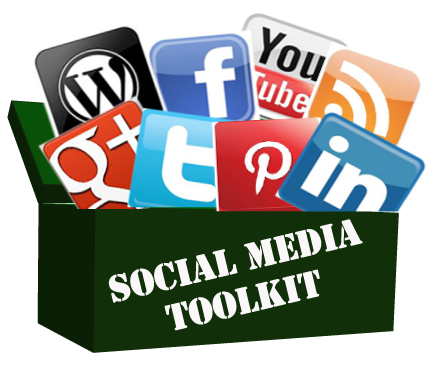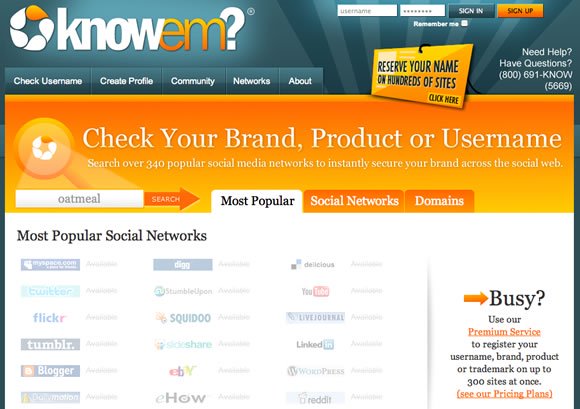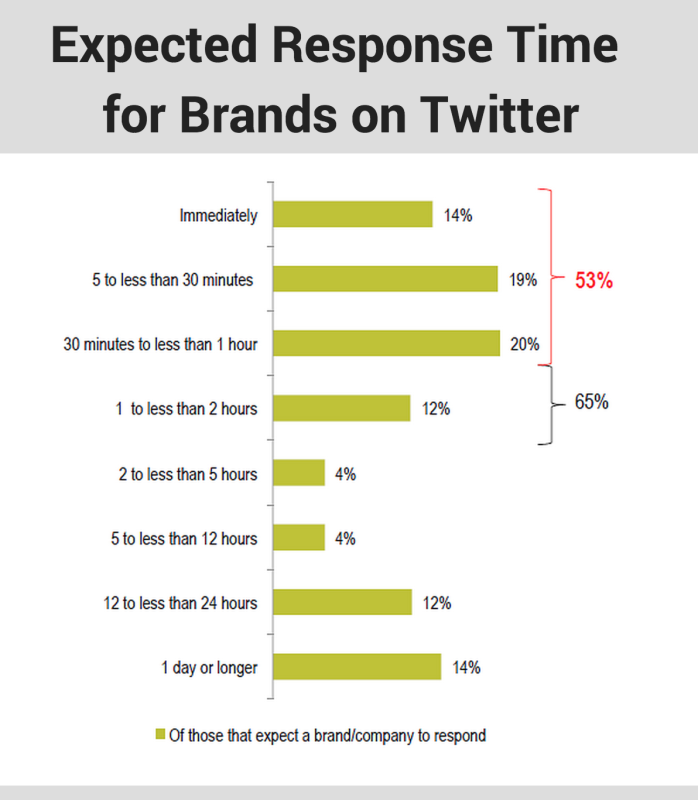
Improve your voiceover profile using social media to improve how you develop your personal brand. Social media presents incredible opportunities for you to connect with people, share your passions, interests and build your network. Such is the power of social media that brands like Nike are steadily moving their marketing from traditional print and TV and pumping it into social media.
Social Media Is An Essential Tool for Voiceovers
If you are a voiceover actor then using social media should be a key tactic in how you develop your personal brand and market yourself. Done well social media will help you develop your professional network, raise your profile in the industry and get more work.

In a crowded and competitive market though it is easy to make rooky mistakes that can damage your chances of getting work. There are lots of different ways social media can be used, but being consistent with how you brand yourself across social media is critical to success.
To use social media effectively you need to take it seriously use the right tools and take an approach that will steadily build your personal brand online. We start here by providing you with tips on how you can build a powerful toolkit to market your voiceover talents.
Using this social media toolkit, having a plan and being consistent can transform the results you get.
Some Social Mistakes To Avoid
When you are in a tough market you have to be a bit more creative, work harder and be determined to get results. This is also true of how you approach social media. It is not a silver bullet that will magically deliver results in a few weeks, it needs focus, consistent work and you – your personality and determination.
First let’s cover off some of the things that people do badly so you get an idea then of what good looks like.
Think of these as social media mistakes to avoid, you will probably recognise them because a lot of people easily fall into these traps:
- Spamming – yes even social media can be spammy. If you are trying to get the attention of people e.g. a voiceover producer or a company that has a job, then sending direct messages using the @theirname to get their attention is basically spamming. This is particular true if you have never contacted them before and you are simply chucking some piece of work their way hoping that they will listen to it.
- Self Promotion – social media is a great place to get noticed, but lets face it, if that is all you do it looks bad and chances are people won’t pay attention to it. Imagine if you are at a party and all the person does is talk about themselves, how good they are and brags about their work. Would you really listen for long or want to see them again? Well when people see your Twitter stream you want them to see that you are interesting not just a self promoter and therefore follow you.
- Repetitive posting – if you are posting the same content repeatedly it can look a bit robotic or at worst desperate. This often shows that you are not thinking about your personal brand, marketing and are being lazy in how you want people to view you.
- Posting too formally – as a voiceover artist it is about you and your need to make sure your personality comes over. Hiding away and just posting what you think people want to hear doesn’t help people get to know you and can often look a bit confusing.
- Not building relationships – if you are just focused on it as a channel to push your work others won’t help you and build a relationship with you.
The important takeout is to think of social media as a long-term investment that you will benefit from and not just a quick fix. Sure, you can see some positive results in the short term, but the biggest benefits can only be truly realized after months or even years. Unfortunately, many people try out a new platform, then quickly give up on it when they don’t see immediate results.
Like any technology, it’s not the tool that poses the problem. It’s how we use that tool.
5 Hot Tips To Improve Your Voiceover Profile On Social Media
As a voiceover actor you have lots of skills and opportunities to be creative in how you use social media. If you have time between jobs you can use this to build your brand online.

The first thing to recognise is that you are a brand. Yes, you might be tempted to think of brands only in terms of businesses. However, brands go much further and do come down to us as people. As Barry Feldman said in a blog post:
You, my friend, are a brand.
You’re a brand. I’m a brand. We’re all brands, whether we aim to be or not.
Personal branding then is critical to being a voiceover actor; it is how you manage and optimize the way that you are presented to others. In today’s’ digitally connected world social media is one of the keys (if not the biggest key) to managing your personal brand online.
This infographic by Feldman Creative and Placester gives you the top benefits of why you should focus on you as a brand.

Based on the idea of developing your personal brand on social media here are five hot tips on how to get it right.
#1 – Be Focused On Who You Are
Before you can establish or develop your expertise, you have to decide what you want to be known for.
On social media platforms you have to tell people who you are. The main place for this is in the profile section on each platform.
Now I appreciate you might have a great voice and can do lots of different voices and even have a wide portfolio of work. The trouble is though that people search for and hire people that are specialists these days. In other words you trade work for variety and often price.
Specificity is a trade of volume for significance.
On social media sites you need to be known for 2-3 areas of work.
# Tip – Look like you have taken time to identify what you are good at. What do people say you are best?, What do you enjoy doing the most? What is the part of the voiceover industry where your voice works best?
If you are focused on animation as an example you then can research and keep up to date with industry news, build relationships with production houses, agents and many more people. By focusing you start not only to be good at the voices needed but know the industry inside out. That expertise will then be seen as adding value to the jobs you get, especially if can help shape the quality of the work with your ideas.
So how do you start researching a chosen niche part of the voiceover industry? Some research tools you can you use are:
- Twitter Advanced Search options
- Buzzsumo
- Hashtags.org
- Ritetag
Using these tools you can keep up with what is being said, news and find out about other great voiceover artists in that niche – you can then connect with these and even learn from them. Build relationships.
#2 – Be consistent with your name, profile, pic, imagery, and look across your social profiles
If people look you up online, they often look across multiple places. As an example I will often check Twitter, Facebook and LinkedIn. If these profiles don’t match up it can look odd.
#Tip – Keep a consistent profile. This will help others find you easily, and secure a picture of you and what our good at in their minds. The fewer variations you have, the easier it is to be memorable.

-
-
- Reserve your name on all social channels – check using Knowem – enter your name into to see its availability on over 25 of the most popular social networks. Use First name and last name is best if available. Do your best to avoid nicknames, shortened names, etc., unless you use the variation consistently.
- Use the same profile photo across channels – you can use IFTTT recipe to get your profile photos synced up between channels. Every time you change your Facebook profile photo, your Twitter profile photo changes, too.
-
-
-
- Come up with a catchy, unique headline, blurb, or bio.
-
Think of it as a headline on an ad for “Brand You”
In a follow up post I will talk about how to optimize your keywords for your website and on social media. For now though think about your profile as having a headline with keywords and then a power statement which tells people how your experience and expertise fits to their needs.
Neil Patel is an expert online marketer and he offers these these tips for a good Twitter profile:
- It’s accurate. One professional description.
- It’s exciting. One word that is not boring.
- It’s targeted. One – three niche descriptor (speciality)
- It’s flattering. One accomplishment.
- It’s humanizing. One hobby.
- It’s intriguing. One interesting fact or feature about yourself.
- It’s connected. Link to another social profile.
#3 – Post Regularly To The Most Important Social Media Networks
A piece of research on Twitter showed that one of the most important factors in growth is posting consistently. Another study found that those who tweet more have the most followers.
Research shows (based on brands, so use this as a guideline) that you can post more on some social media networks than others:
- Facebook – 2 times per day
- Twitter – 5 times per day
- LinkedIn – 1 time per day
- Google+ – 2 times per day
- Pinterest – 5 times per day
- Instagram – 1.5 times per day
Vary your posts in both content and media. So use images, quotes, gifs and importantly retweet others great work and share their content. Don’t also forget to comment as well.
#4. Join in with others forums, groups or communities to reach out to others
How do you make a connection with others?
Take a proactive approach to social media engagement by getting involved with your community, remember focus on your 2-3 strengths.
Barry Feldman has a brilliant post on Social Media Today about networking by expert David Bradford. Here are some that Barry felt are relevant to social media.
- Follow up with new connections you make promptly, stay in touch, and always follow-through on your promises.
- Connect the people in your network to each other e.g. if you see a voiceover job opportunity that is right for them but not you.
- Surround yourself with top-notch people.
- Have the confidence to reach out to the best – be polite and respectful
- Study the network of successful friends and leaders in your niche and follow their lead.
- Find mentors. Do as they do.
- Ask for advice from everyone you stand to learn from.
- Give as much as you can.
- Ask your connections if there’s anything you can do for them.
- Ask a lot of questions and listen.
- Tell people you’re excited to hear their stories. They’ll be glad to share them.
- Make yourself available to your peers
#5. Monitor mentions of your name, and reply quickly

According to a study by Lithium Technologies, 53% of people who tweet at a company brand expect a response within the hour. Now you are not a company brand, but it is important to respond quickly.
Track your mentions with a monitoring tool like Mention. Mention allows you to track your name online.
Another useful way of keeping tabs on mentions is to set up notifications in the main social media channels you are using.
- Click here to edit your email settings on Twitter
- Click here for Facebook
- Here for Google+
- Here for LinkedIn
- Here for Pinterest
Alternatively you can use tools IFTT Recipe as an example for Twitter new followers and IFTT Recipe for Facebook messages.
SUMMARY
Building your voiceover brand on social media is something anyone can easily do. Remember to be patient and be yourself. Remember these tips:
- Find and define 1-3 areas of focus for your voiceover niche areas in voiceover
- Build a consistent persona on all your social profiles
- Share 1 to 2 times per day on your most valued channels (share more if one of those channels is Twitter)
- Engage with others by joining chats, groups, and communities
- Track your mentions, and reply within 24 hours
In another blog post I will show you how some people broke though the crowd using social media and got amazing results using some incredibly creative tactics.

Leave a Reply
You must be logged in to post a comment.